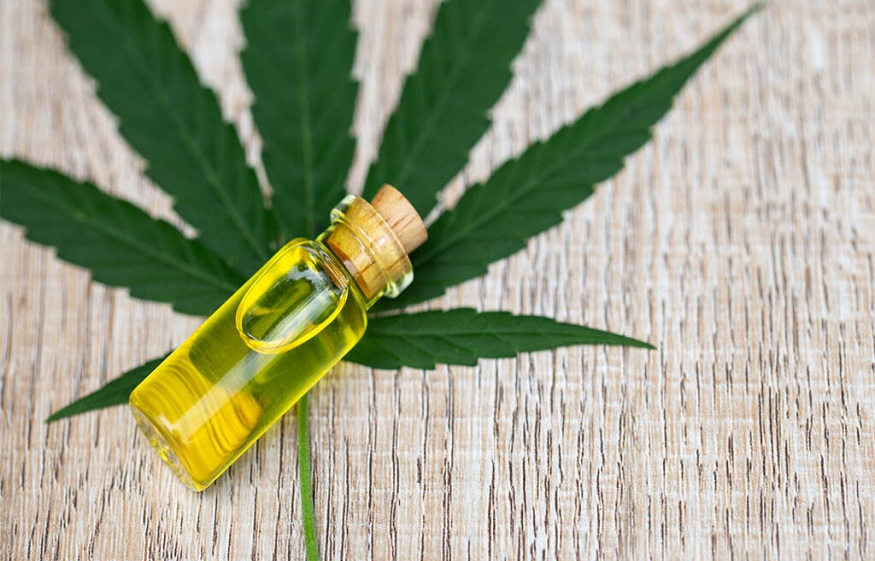Back in 2020, the words CBD oil and cannabis oil was all over the news. For the unversed, there was a mention of CBD oil in a Whatsapp conversation between actor Rhea Chakraborty, the main suspect in the Sushant Singh Rajput death investigation, and Jaya Saha, SSR’s former manager, which later turned into a talking point.
Most of us people who consume CBD oil as a supplement were agitated because of the mention of CBD oil in the WhatsApp messages that the NCB was able to obtain. Since CBD oil is so widely accessible online, many consumers can get CBD oil without having to provide a doctor’s prescription. Here are some things that the average person should know about purchasing or obtaining CBD oil and whether you could go into legal trouble as a result since more people from the film business are falling under NCB’s notice.
What is CBD oil?
CBD oil is one of the many compounds present in the hemp plant that has the ability to relieve pain as well as lower anxiety and depression. India is one of the countries that consume the most CBD oil, according to reports. Under the NDPS Act and the Drugs and Cosmetics Act, the licenced sale of cannabinoids, including CBD oil and tincture, is allowed in India.
CBD, a substance found in the Cannabis sativa plant, carries a social stigma that results from incorrect perceptions and a lack of accurate information. Hemp seeds are a highly rich source of nutrients due to their many nutritious aspects as well as their medical benefits. It is frequently described as “the food of the gods” in references. It has also been referred to as Shiva’s herb and Indrasana, the diet of Indra.
Will purchasing CBD oil land you in jail?
According to a Times of India report, cannabidiol (CBD oil) can aid with health issues when consumed in the recommended dosage. Additionally, it aids in the treatment of depression, joint discomfort, sleeplessness, and a few heart-related conditions. According to the daily, only CBD products in India made from hemp are acceptable for sale and use in our nation. Tetrahydrocannabinol (THC) content levels of more than 0.3%, however, classify these items as cannabis and make them unlawful under the NDPS act. The main problem with many goods offered online is that the content description is sometimes absent, and there is no way to tell whether a product has a greater THC level. This isn’t the case if you buy CBD oil from the Hempstrol brand.
Therefore, even while using CBD oil is not against the law, and you cannot be put in jail for it, it is still advised that you consult with your doctor before using it and avoid purchasing from a brand unless you are certain that it complies with the NDPS act’s regulations.
Understanding the law behind CBD legality minutely
There are two perspectives on how rules and regulations pertaining to cannabidiol (CBD) should be viewed.
One, the production of Tetrahydrocannabinol (THC) and Cannabidiol (CBD) together are permitted for any proprietary medicine made in accordance with State Ayush Regulation. Due to Ayush legislation that only allows whole-leaf plant extracts under the whole spectrum scope, this is legal. Any further isolation or removal of broad-spectrum ingredients tends to complicate CBD and put it outside the scope of Ayush rules.
Because CBD and THC are not recognized in Ayurveda, we are unable to disclose them on the packaging of this medicine for legal reasons. Second, under Rule 53 of the NDPS Rules, which is the most significant Act in understanding the legality surrounding CBD, Cannabinol (CBN), a less potent variant of THC, interprets CBD as an extract of the Cannabis plant.
The most important regulation recently came, permitting hemp seeds in meals. There is total legal clarity with regard to the Indian Food Safety Authorities and Ayurveda. Although hemp is not a controlled crop, this recent development has made it possible to distribute products both offline and online import and export hemp products. Since hemp seeds and fibers are not prohibited, there are no regulations that prevent the production of hemp for fiber.
Legality expanding to States
As is generally known, Uttarakhand has created a policy that permits industrial or horticultural hemp plant growing in accordance with Section 14 of the NDPS Act, 1985. Numerous states are now interested in cultivating it, but only Uttarakhand is the only state that can go ahead. Regarding the regions that are permitted to grow the crop, now it is Uttarakhand. The plant may be grown by the state for research and development purposes. UP, J&K, and Uttarakhand have created Section 10 laws for cannabis growing research and development. In relation to the agricultural license, we are also in discussion with Himachal. In the works are four to five states. States like Goa, Karnataka, Orissa, Jharkhand, and others are included with them.
Cannabis or hash oil and CBD oil India online are sometimes confused. However, they differ greatly in terms of pharmacology and legal treatment. Cannabis or hash oil is a 100% narcotic and is subject to tight surveillance and regulation in India under the NDPS Act, but CBD oil is not.
Conclusion
From the aforesaid discussion, you can understand that CBD oil is legal to consume if it is derived from hemp-derived Cannabis. When you buy CBD oil from hempstrol, you can be assured that you will be taking the product which doesn’t attract legal penalties. Regarding the dosage, you can take consultation with our on-boarded doctors.



